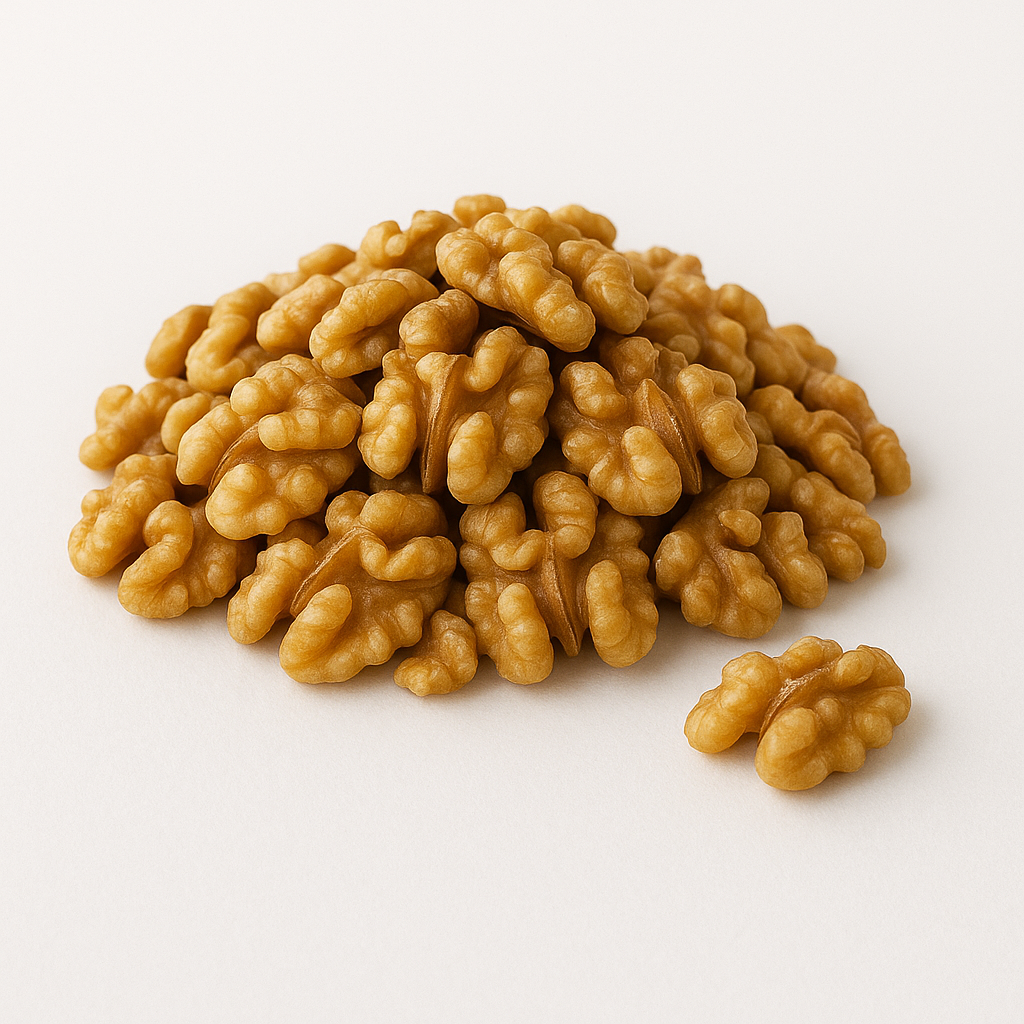Wadi
Walnuts
Walnuts
Couldn't load pickup availability
Primary Uses:
1. Culinary use:
- Baking: walnut bread, cakes, cookies, and brownies
- Cooking: walnut crusted chicken or fish, walnut pesto, and walnut sauce for pasta dishes
- Snacking: roasted or candied walnuts, trail mix, and nut butter
2. Flavoring use:
- Salad dressings: walnut oil adds a nutty flavor to vinaigrettes
- Cheese plates: walnuts pair well with soft cheeses like brie and goat cheese
- Beverages: walnut milk can be used as a dairy-free alternative in smoothies and coffee drinks
3. Aroma use:
- Candles: walnut scented candles can create a warm and cozy atmosphere
- Potpourri: crushed walnut shells can be added to potpourri for a natural and earthy scent
- Soap: walnut oil can be used in soap making for its moisturizing properties and nutty aroma.
Other Uses:
1. Medicinal uses: Walnuts are known to have several health benefits. They are rich in antioxidants, omega-3 fatty acids, and other nutrients that help reduce inflammation, improve heart health, and boost brain function.
2. Religious uses: In some cultures, walnuts are considered a symbol of fertility and are used in religious ceremonies and rituals.
3. Ornamental uses: The wood from walnut trees is highly valued for its beauty and durability. It is often used to make furniture, flooring, and other decorative items.
4. Insect repellent: The scent of walnuts is known to repel insects, making them a natural alternative to chemical insecticides.
5. Dyeing agent: The outer husk of walnuts can be used to create a natural dye that is used to color fabrics and other materials.
6. Folklore uses: In some cultures, walnuts are believed to have magical properties and are used in various folk remedies and rituals.
7. Culinary garnish: Walnuts are a popular ingredient in many cuisines around the world. They are often used as a garnish for salads, desserts, and other dishes.
Caution:
1. High in calories: Walnuts are high in calories, which can lead to weight gain if consumed in excess.
2. Allergic reactions: Some people may be allergic to walnuts, which can cause severe allergic reactions.
3. High in fat: Walnuts are high in fat, which can increase cholesterol levels and lead to heart disease if consumed in excess.
4. Expensive: Walnuts can be expensive compared to other nuts, making them less accessible to some people.
5. Short shelf life: Walnuts have a short shelf life and can go rancid quickly if not stored properly.
6. Difficult to crack: Walnuts can be difficult to crack open, which can be frustrating for some people.
7. Bitter taste: Some people may not enjoy the bitter taste of walnuts, which can make them less appealing as a snack or ingredient in recipes.
Share


